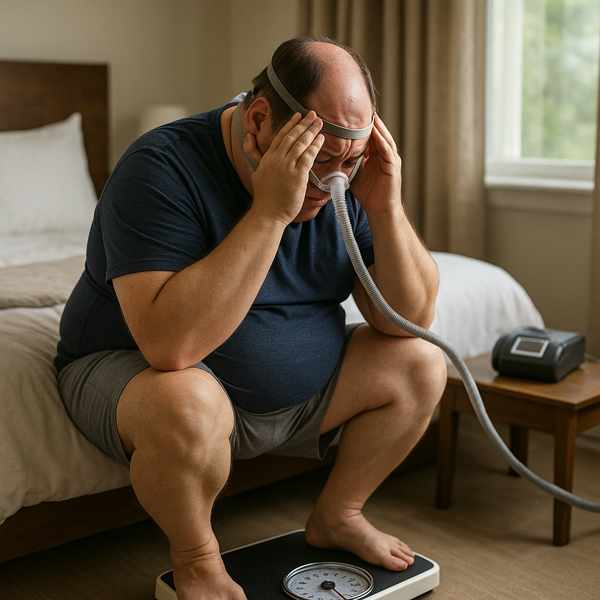Can Weight Loss Cure Sleep Apnea?
Can Weight Loss Cure Sleep Apnea?
Blog Article

Many people with sleep apnea experience snoring, daytime fatigue, and health complications.
Let’s explore how shedding pounds can affect this sleep condition.
What Is Sleep Apnea?
Sleep apnea occurs when breathing repeatedly stops and starts during sleep.
Common symptoms include:
- Loud snoring
- Choking or gasping during sleep
- Difficulty staying alert during the day
- Signs of disrupted oxygen flow
How Obesity Impacts Breathing
Fat deposits in the throat may narrow the airway, making it more likely to collapse.
Key risk factors include:
- More weight increases OSA risk
- Fat around the neck and jawline
- Can contribute to airway collapse
Does Losing Weight Help OSA?
In many cases, losing weight can dramatically reduce or eliminate sleep apnea symptoms.
Possible benefits of weight loss:
- Improved nighttime breathing
- Better oxygen flow
- Less need for CPAP machines or surgery
- Feel more rested and alert
However, weight loss may not cure sleep apnea in all cases — especially if anatomical issues or severe OSA are present.
What Results Can You Expect?
Even modest weight loss can have a big impact.
Tips:
- Focus on progress, not perfection
- cpap and weight loss Combine diet and exercise
- Track your sleep changes
Natural Weight Loss Tips for Better Sleep
Effective strategies:
- Limit sugar and processed carbs
- Exercise regularly (cardio + strength)
- Sleep on your side
- Avoid alcohol and sedatives
Working with a nutritionist or sleep specialist can provide more personalized support.
What to Do if Symptoms Persist
While weight loss is helpful, it may not fully resolve sleep apnea for everyone.
- CPAP therapy (Continuous Positive Airway Pressure)
- Oral appliances
- Surgery in severe cases
Final Thoughts on Weight Loss and Sleep Apnea
So, can weight loss cure sleep apnea? In many cases, it can help manage the condition.
Still, sleep apnea is a medical condition that may require combined treatments. Report this page